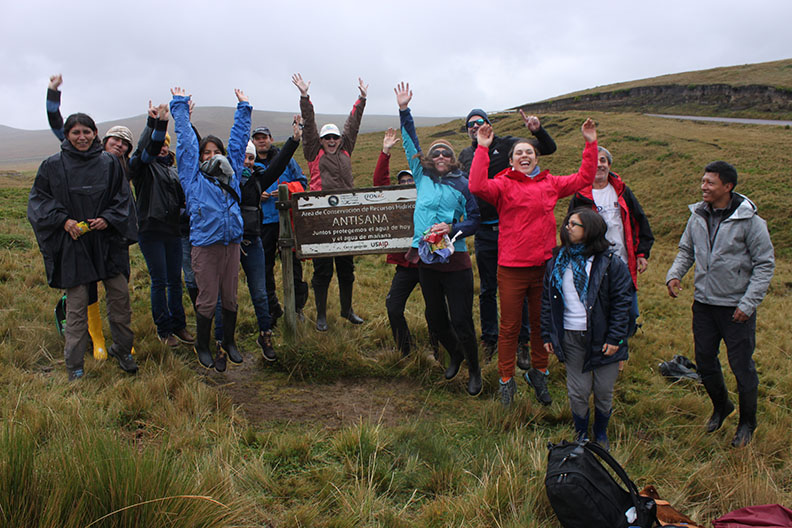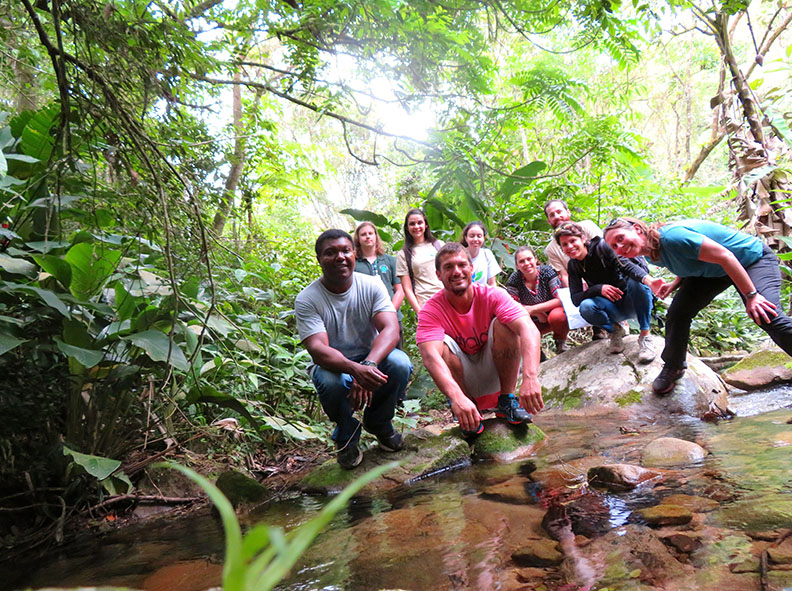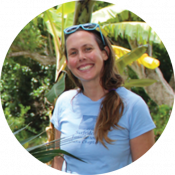

SPONSOR:
Belmont Forum/National Science Foundation
PROJECT PERIOD:
2016 – 2019
PROJECT PI:
Kate Brauman, CO-PIs AND SENIOR PERSONNEL: Leah Bremer, Perrine Hamel, Alex Ponette-Gonzalez, Humberto Rocha, and Martina Florke
ABSTRACT:
Compensating upstream residents to manage their land in beneficial ways is one way to improve downstream water resources. Projects like this, referred to as Investments in Watershed Services (IWS), are spreading rapidly in the montane regions of South America. However, the hydrology of changing landscapes in tropical mountains is understudied, as are the impacts of climate change. ClimateWIse, a three-year project involving scientists from the University of Minnesota, the University of North Texas, the University of São Paulo, the University of Kassel, Germany, and the Natural Capital Project with support from the Belmont Forum through national funding agencies, is evaluating whether IWS projects increase water quality and availability. To do so, the project is using information and data from the Latin American Water Funds Partnership and the Brazilian Water Producer Program to measure and model impacts of land use and climate change on high-elevation páramo grasslands and the Andean and Atlantic forests of South America.
Project Publications:
Bremer, L.L., P. Hamel, A.G. Ponette-González, P.V. Pompeu, S.I. Saad, and K.A. Brauman. 2020. Who are we measuring and modeling for? Supporting multilevel decision-making in watershed management Water Resour. Res. 56(1). https://doi.org/10.1029/2019WR026011
Hamel, P., L.L. Bremer, A.G. Ponette-González, E. Acosta, J.R.B. Fisher, B. Steele, Cavassani A.T., C. Klemz, E. Blainski, and K.A. Brauman. 2020 The value of hydrologic information for watershed management programs: The case of Camboriú, Brazil. Sci. Total Environ. 75. https://doi.org/10.1016/j.scitotenv.2019.135871
Bremer, L.L., and K.A. Brauman. 2020. “Who are we measuring and modeling for? Supporting real-world watershed management.” UHERO Blog, March 11, 2020, https://uhero.hawaii.edu/who-are-we-measuring-and-modeling-for-supporting-real-world-watershed-management/ (in press at Global Water Forum)
Bremer, L.L., K.A. Brauman, S. Nelson, K. Meza Prado, E. Wilburn, and A.C. Fiorini. 2018. Relational values in evaluations of social outcomes of payment for watershed services: a review. Curr. Opin. Environ. Sustain. 35:116–123. https://doi.org/10.1016/j.cosust.2018.10.024
Nelson, S.H., L.L. Bremer, K. Meza Prado, and K.A. Brauman. 2020. The political life of natural infrastructure: Water funds and alternative histories of payments for ecosystem services in Valle del Cauca, Colombia. Dev. Change 51(1):26–50. https://doi.org/10.1111/dech.12544
Bremer, L.L., and K. Meza Prado. 2017. Seven things we learned by listening to those who make water funds happen. Cool Green Science, August 4, 2017. https://blog.nature.org/science/2017/08/04/seven-things-learn-listening-water-funds/
PRINCIPAL INVESTIGATOR
